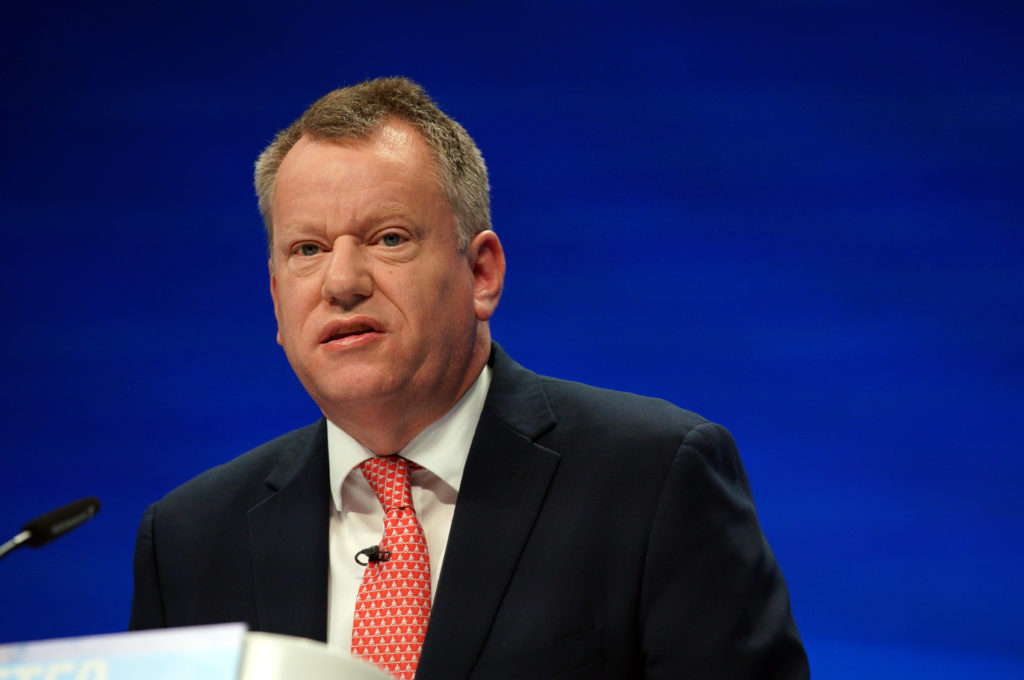Lord David Frost, who negotiated Britain’s departure from the EU as Brexit Minister, resigned from his position as Brexit minister last night with “immediate effect”.
Known within Government as “Boris’s Brexit brain”, Lord Frost led the UK’s negotiations with the EU on a free trade agreement during the transition period, and headed the government team in the present disputes over Northern Ireland.
It is understood that Lord Frost handed his resignation to the Prime Minister a week ago, but was persuaded by Mr Johnson to stay in his post until January. Lord Frost brought forward his departure following an exclusive in The Mail on Sunday, which revealed his intentions.
In his resignation letter, released by Downing Street, Lord Frost praised Mr Johnson’s work to implement the EU referendum result, but expressed his “concerns about the current direction of travel”. Making clear his frustration with Mr Johnson’s pandemic strategy, he added: “We also need to learn to live with Covid and I know that is your instinct too. You took a brave decision in July, against considerable opposition, to open up the country again”.


“Sadly it did not prove to be irreversible, as I wished, and believe you did too. I hope we can get back on track soon and not be tempted by the kind of coercive measures we have seen elsewhere”.
Frost’s written frustrations line up with a senior Government source who said his departure had been prompted by the introduction of “Plan B” Covid measures, including vaccine passports.
Lord Frost also stressed in his letter: “I hope we will move as fast as possible to where we need to get to: a lightly regulated, low-tax, entrepreneurial economy, at the cutting edge of modern science and economic change”.
Johnson’s retreat from the threat to trigger “Article 16” of the Brexit agreement, which would suspend parts of the trade deal agreed for Northern Ireland, is also considered to have contributed to Frost’s departure. In October, Lord Frost told an enthused Conservative Party Conference that he would trigger Article 16 to suspend the “NI protocol” if insufficient progress was made in talks with the EU.
This development is hence a blow to unionists in Northern Ireland. With the departure of hardliner Frost, it is now less likely that the UK will seek a radically reformed Brexit agreement.
Along these lines, DUP leader Sir Jeffrey Donaldson expressed his regret at Lord Frost’s departure: “This government is distracted by internal strife, and Lord Frost was being frustrated on a number of fronts. We wish David well. We enjoyed a strong relationship with him and his team, but this raises more serious questions for the Prime Minister and his approach to the NI Protocol”.
Frost’s resignation is another severe blow for the PM who leads a deeply beleaguered Downing Street. Just this week, Mr Johnson experienced a Commons rebellion of 100 Conservative MPs over the Plan B measures and a humiliating loss in the North Shropshire by-election, a once-safe consistency with a 23,000 majority.
Messages from a Whatsapp group of more than 100 Conservative MPs called “Clean Global Brexit” underline the major fissures opening up within the party.
Theresa Villiers, former Northern Ireland secretary, said it was “Very worrying that Lord Frost has gone”. Andrew Bridgen, backbencher and Brexiteer, replied: “Worrying? It’s a disaster. Lord Frost was concerned about the policy direction of the gov. So are most of the Conservative backbenchers”.
On the same group, current Culture minister Nadine Dorries described Mr Johnson as a “hero” which prompted her removal from the group by arch-Brexiteer and perennial rebel Steve Baker. “Enough is enough”, Baker said.
In his reply to Lord Frost’s resignation letter, Johnson he was “very sorry” to have received his resignation and thanked him for his “unique contribution towards getting Brexit done”.
Speaking to Sky News’ “Trevor Phillips on Sunday” this morning, Health Secretary Sajid Javid described Lord Frost as “a principled man. Principled people do resign from the government – I know all about that”, referring to his resignation as Chancellor in February 2020.
Mr Javid added that Lord Frost was an “outstanding public servant” and a “central architect” in the Brexit deal.









